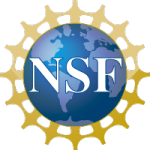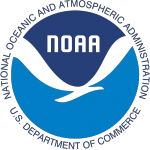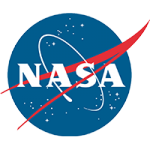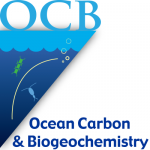What's the plan?
Ocean acidification scientists affiliated with academic and federal agencies convened in Woods Hole, MA from March 22-24, 2011 for the first ocean acidification-only science and networking meeting in the nation.
The meeting agenda was packed. Attendees included newly funded OA researchers and investigators from disciplines not normally represented in the OA community as well as scientists already working on OA. Activities will included overview talks, synthesis discussions, breakout sessions, and plenary discussions designed to identify research commonalities, untapped resources, and collaborative opportunities that you can use today and tomorrow.
Motivation
To aid the development of the national ocean acidification research program, the OCB ocean acidification subcommittee sought to bring the OA community together while many research projects in the U.S. were still in their early phases, to foster collaborations to maximize all outcomes of the research: the research findings themselves, the associated education and outreach activities, data management efforts, and future research planning.
Specific meeting goals
1) Strengthen scientific collaboration and minimize duplication of research effort.
2) Build capacity for improving OA research.
3) Identify short and long-term research goals.
4) Promote effective data management.
5) Enhance communication with the public.
6) Solicit feedback to guide future OCB-OA activities.
Interagency Working Group on Ocean Acidification Themes
The IWG-OA has identified seven themes guiding the national OA research plan that relate strongly to meeting activities.
They include:
1) Monitoring ocean chemistry and biological impacts
2) Assessing responses to ocean acidification
3) Modeling forecasts of ocean carbon cycle changes and ecosystem impacts
4) Developing and standardizing measurements
5) Assessing socioeconomic impacts and conserving marine organisms and ecosystems
6) Promoting education, outreach, and engagement
7) Supporting data management, integration, and synthesis
1st U.S. Ocean Acidification Principal Investigators' Meeting Workshop Report
Meeting Archive
- Agenda with Talks
- Participant Information
- Poster Information
Agenda with Talks
Tuesday, March 22, 2011
8:30 Welcome, Introduction, Logistics, Announcements (Kleypas, NCAR)
8:45 Meeting Goals and Structure (Kleypas) Video (.WMV, 108 MB)
Theme 1: Paleo & Proxies/ Modeling (Chair: Benway, WHOI)
9:00 Plenary Talk: Constraints from the Past (Hoenisch, LDEO) Video (.WMV, 133 MB)
9:30 Synthesis of Paleo Projects (Benway) Video (.WMV, 58 MB)
9:45 Panel Discussion Paleo, Proxies Video (.WMV, 79 MB)
Theme 2: Observations & Monitoring (Chair: Robbins, USGS; Feely, NOAA)
10:30 Plenary Talk: A National Ocean Observing System for Ocean Acidification (Feely) Video (.WMV, 133 MB)
11:00 Synthesis of Facilities, Sensors & Platforms (Sabine, NOAA) Video (.WMV, 48 MB)
11:15 Synthesis of Observations Research Projects (Robbins)
11:30 Panel Discussion of Facilities, Sensors, Platforms and Observations Video (.WMV, 78 MB)
12:00-12:15 CGBD Update on OA Public Opinion Research (Lisa Dropkin, Edge Research) Video (.WMV, 54 MB)
12:15-12:20 Breakout Instructions
1:30-5:00 Breakouts
- Breakout Session I: Improving science through stronger collaborations, facilities, and infrastructure
- Breakout Session II: Ocean acidification and society: making OA human-relevant via science, communication, capacity building
5:00-7:00 Hors d'oeuvres reception and Poster Session
Wednesday, March 23, 2017
Theme 3: Physiological responses to OA (Chair: Kleypas)
8:30 Plenary Talk: Organismal and Evolutionary Biology in OA Research (Ron Burton, OA) Video (.WMV, 127 MB)
9:00 Synthesis of unicellular organism physiology (Kleypas) Video (.WMV, 49 MB)
9:15 Panel Discussion Video (.WMV, 62 MB)
9:30 Synthesis of multicellular organism physiology (Hoffmann, UCSB) Video (.WMV, 55.1 MB)
9:45 Panel Discussion Video (.WMV, 69 MB)
Theme 4: Ecology & System Responses to OA (Chair: Langdon, U. Miami)
10:30 Plenary: Ecological Responses to OA (Gaylord, UC Davis) Video (.WMV, 137 MB)
11:00 Synthesis of ecology projects (Langdon) Video (.WMV, 31 MB)
11:15 Panel Discussion Video (.WMV, 55 MB)
11:30 Special plenary discussion: How to integrate biological research? Video (.WMV, 126 MB)
12:00-1:30 Lunch with Screening of "Tipping Point," a documentary following EPOCA researchers
1:30-17:00 Breakouts
- Breakout III: Scaling & modeling across time and space
- Breakout IV: Improving research on the Physiological and Ecological Responses to OA
6:00-8:00 Meeting dinner
Thursday, March 24, 2011
Theme 5: Biogeochemistry & Modeling (Chair: Cooley, WHOI)
8:30 Plenary Talk: Overview on BCG (Passow, UCSB) Video (.WMV, 193 MB)
9:00 Synthesis of BCG Projects (Kleypas) Video (.WMV, 73 MB)
9:15 Panel Discussion BGC Video (.WMV, 61 MB)
9:30 Synthesis of Modeling Projects (Cooley) Video (.WMV, 112 MB)
9:45 Panel Discussion Modeling
10:30 Data Management (Chandler, BCO-DMO) Video (.WMV, 203 MB)
11:00 "European Projects and International Activities" (Gattuso, EPOCA) Video (.WMV, 188 MB)
11:30 The US National OA Program (Ned Cyr, NOAA and Phil Taylor, NSF) Video (.WMV, 237 MB)
12:00-12:15 Comments from Agency Program Managers
- Christine Ruf, presented by Julie Reichert (EPA) Video (.WMV, 47 MB)
- Libby Jewett (NOAA) Video (.WMV, 69 MB)
12:30 Lunch
Update on recent workshops
1:30 ECCO (Hofmann) Video (.WMV, 65 MB)
1:40 PAGES-NSF (Hoenisch) Video (.WMV, 23 MB)
1:50 Oceans in high-CO2 world III (Urban, SCOR) Video (.WMV, 87 MB)
2:00 Break Out Group reports & discussion on:
- Increasing Quality of Science Video (.WMV, 84 MB)
- Increasing Collaboration (National and International) Video (.WMV, 116 MB)
- Future Directions in OA Research Video (.WMV, 100 MB)
- OCB's Role in OA Video (.WMV, 83 MB)
3:00-3:30 Break
3:30 Final Open Plenary Discussion: The Most Compelling OA Science We Should Tackle Within the Next 5 Years Video (.WMV, 181 MB)
3:55 OCB Project Office meeting wrap-up (Doney, WHOI)
4:00 Meeting Adjourned
Participant Information
2011 OA PI Meeting Participant List
Poster Information
2011 OA PI Meeting Poster Abstract
Workshop Sponsors







